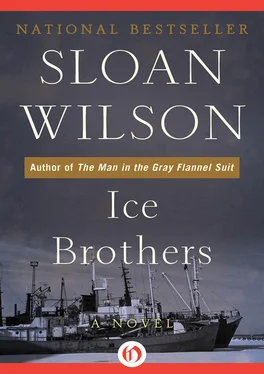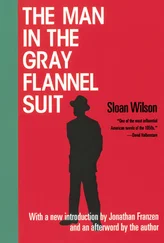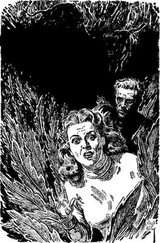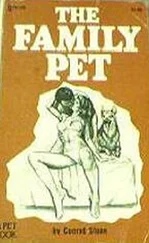The enlisted men had fallen silent at the approach of the officers, but now a coxswain who looked and talked like a bright college boy, said to Paul, “Sir, are you going to be stationed aboard here?”
“It looks that way.”
“Are we going to Greenland?”
“I guess that’s supposed to be a secret, isn’t it?”
“Well, we figure from the way this ship is painted and the way they’re beefing up the bow with steel plates and all, it sure doesn’t look like we’re headed for the jungles of New Guinea,” the coxswain said and everyone laughed.
“You might say that,” Farmer said, “but the way the Coast Gad does things, they might send an icebreaker to New Guinea after all.”
More laughter.
“Sir,” the coxswain continued to Paul, “did you see the news this morning about Greenland? It was in the Record. ”
“No. What is it?”
“The Northern Light , sir, she captured a German weather ship just five miles off the east coast of Greenland. They had a regular battle, but when our planes came in, the Germans gave up.”
Paul wondered whether Chris had known that when he discussed the German interest in Greenland weather.
“They had a picture of the German ship in the paper,” the coxswain continued. “She’s a trawler just like this, but much bigger and she carries a long gun on the bow, something like a five-inch fifty-one, much bigger than any of our trawlers have. She’s got big antiaircraft guns mounted all over her. The papers don’t say how much of a fight she put up, but you know the Northern Light is just about the biggest cutter we have. I was aboard her just a couple of months ago. She carries two five-inch fifty-ones and two three-inch fifties, along with about six twenty-millimeters. If the Northern Light had to radio for planes to beat a trawler, that must have been some tough ship.”
Well, Paul thought, Erich had said the Germans wouldn’t be easy to beat.
“That’s interesting,” he said. “I’ll try to get a copy of the paper.”
“Sir,” the coxswain persisted, “do you think this means the Germans will give up on Greenland weather, or just come back with ships that are even better armed?”
“I don’t know,” Paul said carefully.
“I do not believe that the Germans can give up on Greenland weather,” Green said, speaking for the first time. His voice was very deep with a New York edge to it, maybe a hint of a Brooklyn accent. “Without a knowledge of Greenland weather it’s impossible to make accurate forecasts for Europe.”
“Why is that, sir?” the coxswain asked.
“To oversimplify it, Greenland weather moves east, warms up, and that’s what Europe gets two days later. I’m no meteorologist, but I’ve read a lot about it.”
“Thanks, sir. Are you going to be stationed aboard here too?”
“They tell me I’m to be the communications officer.”
“Thank you, sir. When do you think we’ll be getting our skipper?”
“Before we sail, I hope,” Green replied without a smile, but there was a glint of humor in his deep-set eyes.
Paul hardly heard him. He was imagining a German trawler much bigger than this one being outfitted in some Danish or Norwegian yard with enormous guns. Her crew would be made up by experienced sailors, Germans like his own ancestors, but men who knew the Arctic, not a bunch of novices. Such a ship might be heading for Greenland just as the Arluk started north. In what fog-shrouded ice floe would they meet and what would happen?
Feeling restless, Paul excused himself and starting forward, began a minute examination of the ship. The high bow had been reinforced with sheathing of stout oak planks and steel plates. There was a small gun platform on the forecastle head, but no gun yet. The bridge ran the full breadth of the deckhouse, but was not more than six feet deep. There was an engine room telegraph, a wooden ship’s wheel, a magnetic compass, pigeonholes for signal flags and very little else — no fancy modern equipment or naval gadgetry. A door with a new metal sign saving “Commanding Officer” stood open at the afterside of the bridge. After a moment of hesitation, Paul stuck his head in. There was a bunk, a big chart table with a stool and another door that had been newly labeled “Head — for C.O. only.” The cabin was painted white and trimmed with varnished oak. It was Spartan enough, but Paul imagined the pride he would feel if he ever actually deserved to occupy that space. Dreams of glory! It would be years before he even deserved the job he had. What kind of a man would appear to occupy this stark but somehow royal cabin in the days immediately ahead? Chris had warned him that some of the ice pilots chosen for such jobs were real wild men. Why didn’t they make a man like Farmer a captain instead of a warrant boatswain? Farmer somehow gave the impression of knowing everything in the world about going to sea, and he certainly was no wild man.
Continuing his walk aft, Paul saw that the name of the ship had been painted in white letters on the blue smokestack. Some wag had dipped a brush in white paint to add the word “Just” in front of it, so that it read, “Just Arluk.” It was funny, but the scrawled addition subtracted from the trim appearance of the new paint job, and it seemed to Paul to disparage the ship at a time when they should be building pride in her. What the hell did Arluk really mean, anyway?
“Hello there.”
The voice, with a slight Scandinavian accent, came from the wing of the bridge of the adjacent trawler. He looked up and saw a rather elegant appearing gray-haired man in a blue uniform with the two stripes of a full lieutenant.
“I’m Hansen,” this officer said. “Are you the Arluk ’s new skipper?”
Flattered by the idea that he at least looked as though he could be the captain of such a ship, Paul said, “I’m the new exec. We don’t have our skipper yet.”
“I’m the skipper here,” the lieutenant said. “Would you like to come over for a drink?”
Paul climbed over the rail and to the bridge of the Nanmak , which was almost exactly like that of the Arluk . Hansen shook his hand warmly and led the way to the captain’s cabin, which was the same as that of the other ship, except that it now boasted a clean sheepskin rug, dark blue silk curtains at the portholes, a damask bedspread, the framed photograph of a beautiful woman on one bulkhead and what looked like an original Audubon print of an Arctic hawk on another. Paul was happy to note that a sword just like his own hung in brackets over the bunk.
“It’s a little fancy, but I like it,” Hansen said. “My wife fixed it up. Where she found the print of the hawk, I don’t know. Nanmak means ‘hawk’ in the Eskimo language, you know.”
“It’s great. Do you know what Arluk means?”
“The hunter — a very proud rank in the Eskimo culture. I don’t know who named these ships. Some admiral’s wife, I suppose, but she did a good job.”
From a rack in a cabinet over the chart table Hansen took a decanter half full of a colorless liquid and two small tumblers of heavy cut glass much like those which had been aboard the Valkyrie .
“The Coast Guard has all kinds of regulations against liquor aboard these vessels, but they’ll have a hell of a time enforcing them with us old ice pilots,” he said. “Do you like Aquavit?”
“Very much,” Paul replied, though he had never tasted the stuff. His first sip stopped him from being a liar.
“Well, here’s to the hawk and the hunter,” Hansen said. “My, that does sound dramatic, doesn’t it? From the look of that German trawler they captured up there in Greenland, I must confess that I’m beginning to feel more like a sparrow.”
Читать дальше












